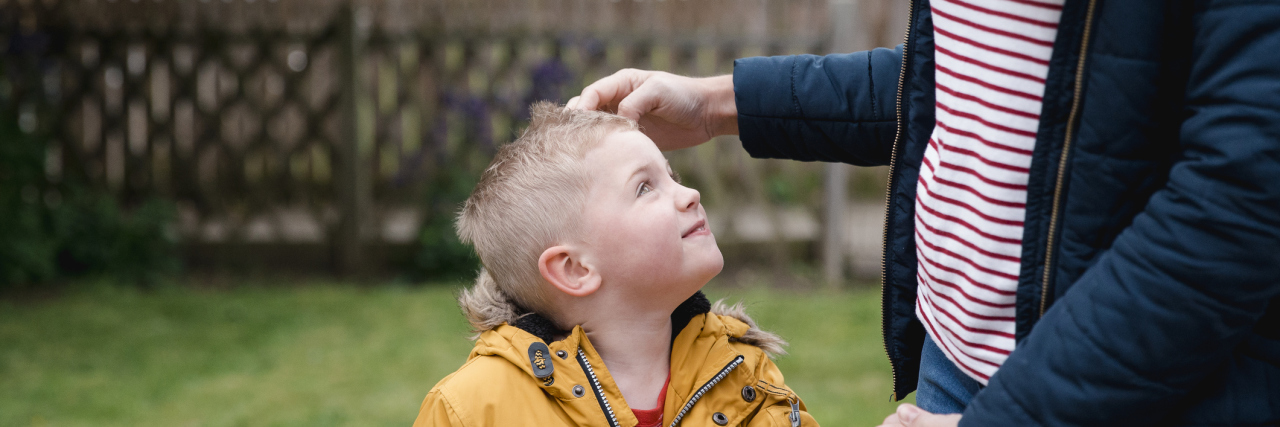When you experience chronic pain and fatigue due to fibromyalgia, it’s often hard to explain to others what it’s all about. Harder still when the others in question are toddlers.
My son, Jared, is 3.5 and although he isn’t yet familiar with my fibromyalgia, he does know that I can’t always sit on the floor and play (when I do, he brings me a cushion), and that Daddy can walk a lot but Mummy can walk just a bit. He’s completely nonplussed by my walking stick and often holds onto it himself when we’re outside, or pretends to be me with it inside.
I’m happy that he’s not fully aware of the extent of it yet. I don’t want to burden him with worry or fear when he’s still making sense of the world around him. That being said, I am very proud of the compassion and empathy he shows me, or anyone else whom he sees ill or in pain, despite being so young.
Recently while I was waiting outside nursery school with my boy, waiting for his teacher to come out and open the gate for us and all of his little friends, a boy I didn’t know pointed at my walking stick and asked me what it was. I told him and then I assured his Mum that it was fine, as she apologized and looked embarrassed. Then he asked what it was for. I told him it was to help me walk, as his Mum was once more apologizing profusely. My new little friend then came over and held onto my stick with me. His poor Mummy was mortified.
I was fine with it, and so was my son who joined us. So, now there were three of us holding my stick and Jared decided to show the newbie how it was done and walked me the few feet across the path and back, lifting my stick up and down for me, assisted by our new pal. As a third child then joined in, I could see the other parents start smiling, nervously at first. I came home and told my husband, who was suitably amused and probably a bit sorry that he’d missed it.
I tend to favor a truthful but lighthearted approach to this stuff with my own kid, so naturally reacted the same way with his classmates. Hopefully their parents were OK with it because I kept it simple and made it OK for the little ones to ask questions.
However, I do wonder sometimes if I’m doing the right thing by keeping it lighthearted and minimal when it’s an awful condition that often isn’t taken seriously enough.
When I deal with this stuff at home, it is with the hope that Jared will grow up feeling like he can ask questions anytime and that he has an awareness of chronic illness that allows him to see it as in no way weird or intimidating.
Inclusivity is so important, and these days disability is becoming a bit more visible on TV, in movies and in ad campaigns. However, there’s still a long way to go before the more “invisible” illnesses like fibro are understood and more widely believed to be genuine.
If I had to do that whole situation over again, I don’t think I’d change the way it went. I’m interested to hear your stories and opinions though – what do you think is the right way to respond to these kinds of questions? How do you stay open and honest with kids, but make sure they aren’t scared off from asking the things they want to ask?
Thanks for taking the time to read, and I look forward to hearing about your ideas and your experiences.
MORE ABOUT FIBROMYALGIA:
Fibromyalgia, a chronic illness with three main symptoms — widespread pain, chronic fatigue and cognitive trouble. Fibromyalgia is a complicated illness that’s not well understood. In the past, it was mischaracterized as a mental health disorder. Even today, some doctors wave off fibro symptoms as being “all in your head.” This isn’t the case. Read The Mighty’s comprehensive guide to fibromyalgia here. Click here to join our fibro community and connect with people who get it.
Getty Image by DGLimages

